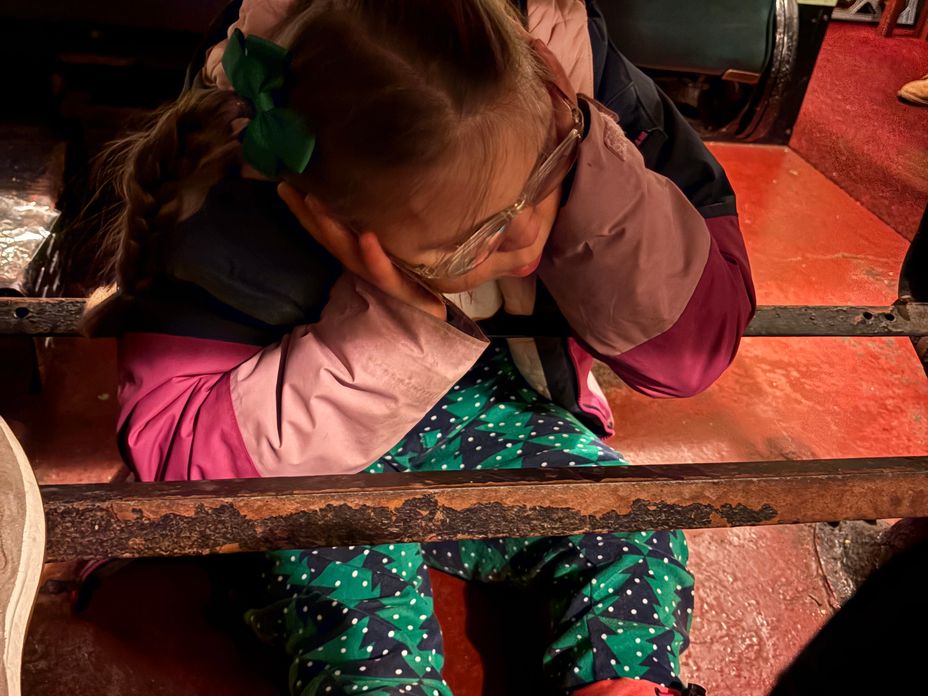Grief and Joy can coexist when raising a child with special needs
Dear Lily,
Sometimes the world is too loud for you—too bright, too fast, too full. I watch you find quiet where you can, hands over your ears, body folded inward, seeking peace beneath the noise.
In moments like these, grief settles deep in my chest. Not the kind that passes quickly, but the kind that aches and lingers. The kind that comes from loving a child in a world not shaped with her in mind.
It hurts more than I ever expected. And it is lonely because this grief is rarely seen, rarely named, and often carried in silence while the season and the world move on around us.
There is so much grief in raising and loving a child with a disability. Grief for the ease we do not have. For traditions that must bend or be set aside. For how often comfort and calm matter more than sparkle, and how often love requires letting go.
And yet, there is also so much joy.
Joy in the way you experience the world with such honesty. Joy in small, glowing moments—soft lights, quiet mornings, familiar routines. Joy in the closeness that grows when we choose presence over performance, connection over expectation.
These things coexist. The grief does not cancel the joy, and the joy does not erase the grief. They live side by side, like candlelight in the dark—flickering, fragile, real.
You are not broken, Lily. The world is simply still learning how to be gentler.
Until it does, I will sit with you in the quiet. I will carry the loneliness when it comes. I will hold both the sorrow and the wonder in my hands . And I will keep hoping—not that you will change, but that the world will be gentler with you and learn to make room, one soft Christmas at a time.
Love,
Mama







